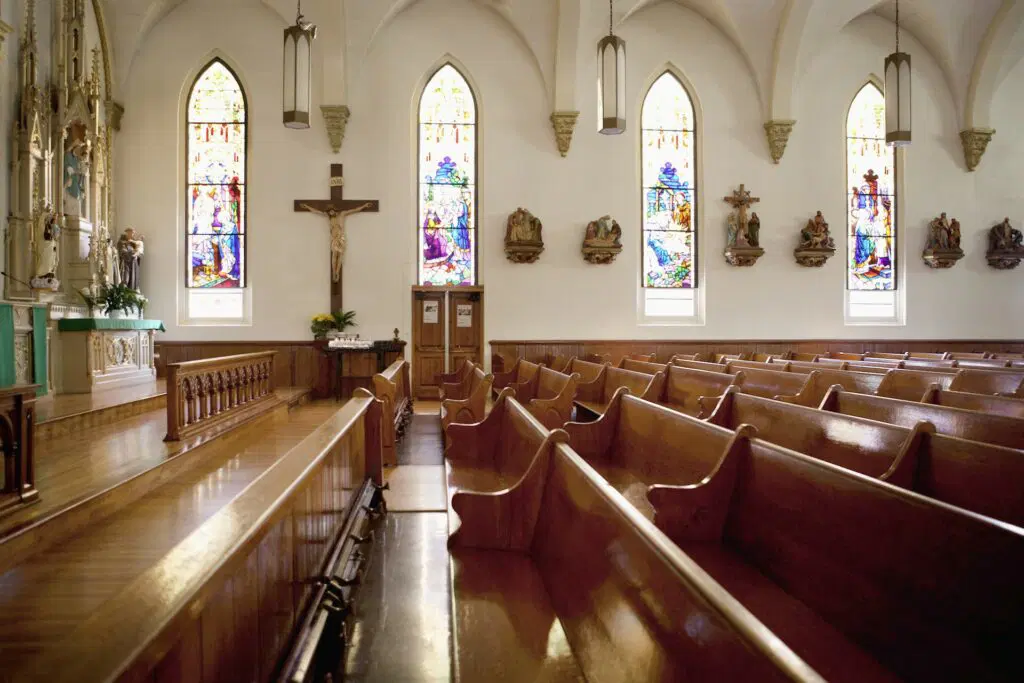
Introduction
The Catholic Church, a vast and complex institution, has played a pivotal role in shaping Western civilization. Its history spans nearly two millennia, marked by profound theological developments, cultural transformations, and social upheaval. Understanding the Church’s evolution provides insight into its influence on contemporary society.
Origins of the Catholic Church
The Foundation: Jesus Christ
The Catholic Church traces its origins back to Jesus Christ, whose teachings and resurrection laid the groundwork for a new faith. Around 30 AD, Jesus gathered followers and preached a message of love, repentance, and the Kingdom of God.
The Apostolic Age
Following Christ’s crucifixion, the Apostles, particularly Peter and Paul, spread his teachings. Their missionary efforts in the Mediterranean region established the first Christian communities, marking the Church’s nascent organizational structure.
The Early Church
Development of Doctrine
In its early days, the Church faced theological disputes. The Council of Nicaea in 325 AD was a critical moment, generating the Nicene Creed, which established foundational Christian beliefs and addressed heretical views.
Persecutions and Martyrdom
During the Roman Empire, Christians often faced severe persecution. The steadfastness of martyrs, such as St. Stephen and St. Polycarp, solidified the community’s resolve and attracted more converts.
The Rise of the Papacy
Peter: The First Pope
Tradition holds that Peter, considered the first Pope, established the papacy’s authority in Rome. This role evolved, influencing the Church’s structure and governance.
The Papal States
By the 8th century, the papacy gained political power, culminating in the establishment of the Papal States. This era marked a significant shift, intertwining spiritual authority with temporal power.
The Middle Ages
The Great Schism
In 1054, the Great Schism split Christianity into Roman Catholicism and Eastern Orthodoxy. This division resulted from theological disagreements, including the filioque controversy, and political tensions.
The Crusades
The Middle Ages also witnessed the Crusades, military campaigns aimed at reclaiming the Holy Land. These expeditions had profound implications for the Church, enhancing its influence but also leading to significant strife and loss.
The Renaissance and Reformation
Humanism and Religious Change
The Renaissance sparked a revival of arts and sciences, challenging the Church’s authority. Humanist thinkers, like Erasmus, questioned established doctrines, leading to calls for reform.
The Protestant Reformation
In 1517, Martin Luther’s Ninety-Five Theses ignited the Protestant Reformation. This movement criticized Church practices such as indulgences, resulting in the formation of various Protestant denominations and significant ecclesiastical upheaval.
The Catholic Counter-Reformation
The Council of Trent
In response to the Reformation, the Catholic Church initiated the Counter-Reformation, highlighted by the Council of Trent (1545-1563). This council reaffirmed Catholic doctrines, addressed clerical corruption, and enhanced the priesthood’s education.
The Society of Jesus
The formation of the Jesuits, or the Society of Jesus, played a crucial role in the Counter-Reformation. Founded by Ignatius of Loyola in 1534, the Jesuits focused on education, missionary work, and the promotion of Catholicism.
Modern Era Challenges
The Enlightenment
The Enlightenment period brought about new philosophical ideas emphasizing reason and individualism. This shift challenged the Church’s authority and led to growing secularism in society.
Vatican I
The First Vatican Council (1869-1870) affirmed papal infallibility, a doctrine asserting that the Pope is incapable of error in matters of faith and morals when speaking ex cathedra. This declaration stirred controversy and debate.
The 20th Century
Vatican II
The Second Vatican Council (1962-1965) marked a significant transformation within the Church. It sought to address modern issues, enhancing ecumenical dialogue and promoting a more active role for laity in Church life.
Social Teachings
The Church responded to social injustices through a series of encyclicals, emphasizing human dignity and the promotion of social justice. Popes like Leo XIII and John Paul II became vocal advocates for the marginalized.
Global Expansion
Missionary Work
The Catholic Church expanded globally through missionary efforts, particularly in Africa, Asia, and Latin America. This outreach led to the establishment of vibrant local communities, often blending indigenous cultures with Catholic traditions.
The Role of Women
The Church has increasingly recognized the role of women within its ranks. Various congregations and movements advocate for women’s leadership and participation in Church activities.
Contemporary Issues
Scandals and Reforms
The Church has confronted numerous scandals, particularly concerning sexual abuse allegations. These crises prompted calls for greater transparency and reform within the institution.
Ecumenical Dialogue
In an era of increasing religious pluralism, the Catholic Church has engaged in ecumenical dialogue with other Christian denominations and world religions, seeking common ground and mutual understanding.
Conclusion
The history of the Catholic Church is a tapestry woven with triumphs and tribulations, faith and doubt. From its humble beginnings to its position as a global spiritual leader, the Church remains a vital force shaping moral and ethical perspectives in contemporary society. Understanding this rich history is essential for grasping the complexities of the Church’s role in the modern world.
FAQs
What is the significance of the Catholic Church today?
The Catholic Church continues to influence millions of lives worldwide through its teachings, charitable works, and social justice initiatives.
How did the Catholic Church respond to the Reformation?
The Church launched the Counter-Reformation, reaffirming Catholic doctrines and addressing issues of corruption to reclaim lost followers.
What was the role of Vatican II?
Vatican II aimed to modernize the Church, promote ecumenical dialogue, and enhance the participation of laity within its activities.
How does the Catholic Church address contemporary social issues?
The Church addresses social issues through encyclicals and active engagement in social justice initiatives, emphasizing the dignity of every person.
What challenges does the Catholic Church face today?
The Church faces challenges such as declining membership, scandals, and the need for reforms addressing contemporary moral complexities.
Also check out…
- The Fruit of the Spirit: Cultivating a Life of Abundance
- Genesis: The Beginning of It All
- Renowned Missionaries: Inspiring Lives and Lasting Legacies


